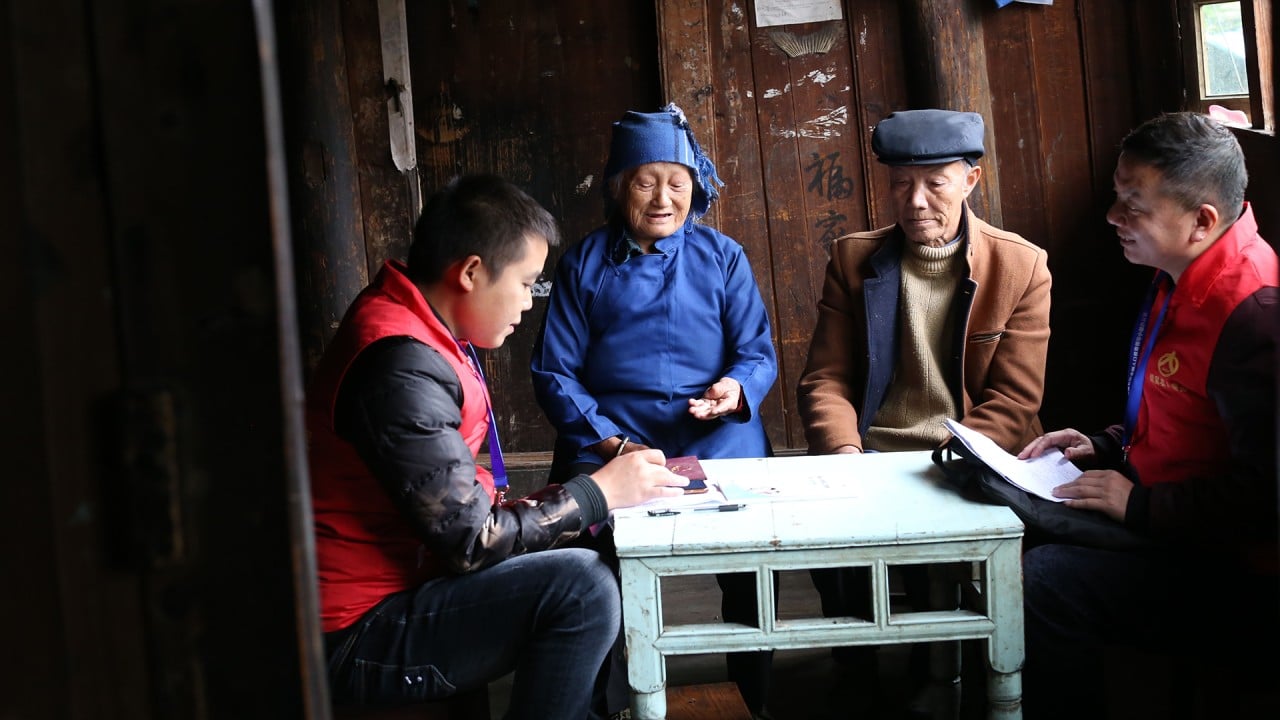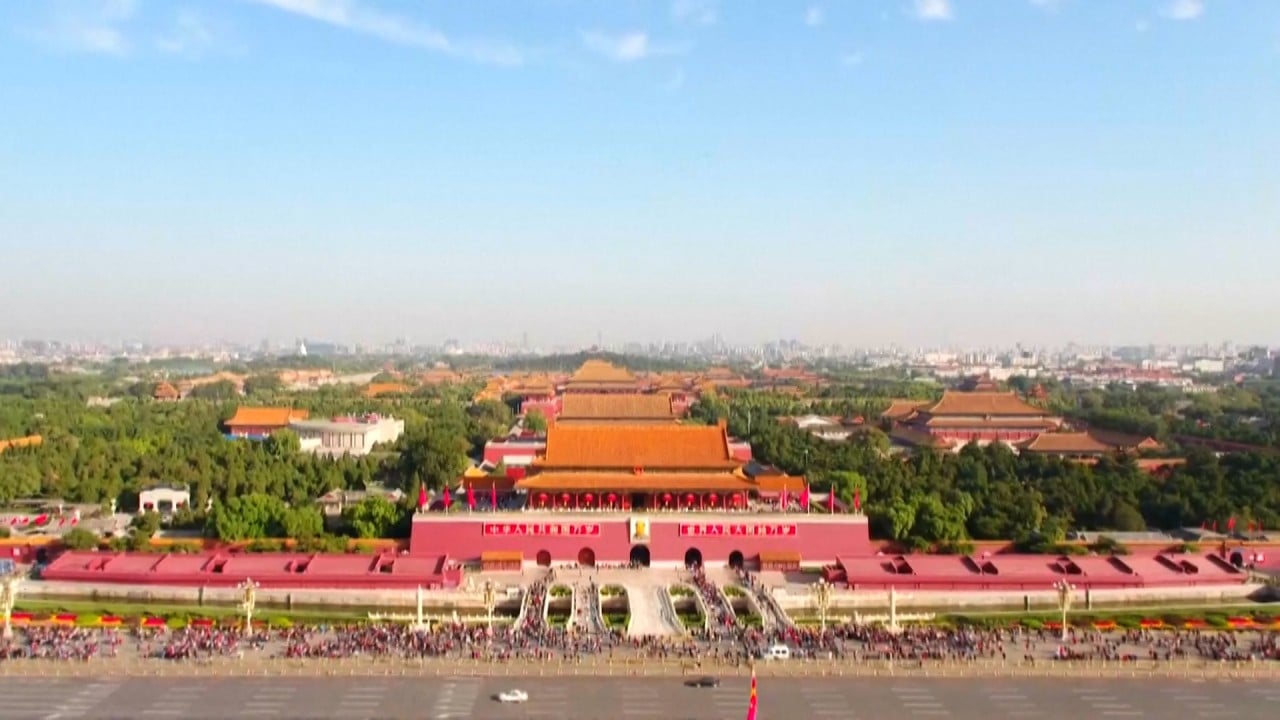
02:04
China expands two-child policy to three

China will allow each couple in the country to have up to three children in a marked departure from its previous two-child limit, but critics say that without incentives and support the change will do little to cope with the nation’s ageing population.
After the announcement on Monday, many people said the high cost of living and other pressures would deter them from having more children.
The decision was announced after a Communist Party Politburo meeting chaired by President Xi Jinping, a meeting in which other proposals such as postponing the retirement age and improving child care services and maternity leave were also discussed.

02:04
China expands two-child policy to three
A statement released after the meeting said major steps were needed to address the deepening problem of the ageing population.
“Birth policies will be further improved. A policy that allows a couple to have three children will be introduced with supporting measures,” it said. “This will improve the population structure of China.”
Dan Wang, chief economist at Hang Seng Bank (China), said the three-child policy would have a positive impact on China‘s birth rate, but not as much as the authorities hoped for.
Wang said that when China replaced its one-child policy with a two-child policy in October 2015, the birth rate rose immediately but the impact of the policy dissipated after three years.
“The high costs of housing and education, as well as a lack of job protection for women, are strong economic constraints on having children,” she said, adding that the cost of having a third child would be too high for most middle-class families.
“Government subsidies have to be in place to address all those problems and a new tax system needs to be set up to give companies the incentive to hire women of childbearing age.”

10:42
China 2020 census records slowest population growth in decades
The decision comes just weeks after the release of a summary of census data pointing to further decline in the number of births in the country.
Yi Fuxian, a specialist in China’s demographics, said the timing of the announcement so soon after the census summary suggested the detailed data to come could be extremely worrying.
“Maybe it’s because the real population data is too scary. Even if they have not published it, it probably frightened the decision makers,” Yi said.
He said he expected further announcements on demographic policy at a meeting of the party’s Central Committee at the end of the year and at the annual legislative sessions next year.
According to the national census conducted at the end of last year, China’s overall population rose to 1.412 billion in 2020, from 1.4 billion a year earlier.
The NBS said Chinese mothers gave birth to 12 million babies last year, down from 14.65 million in 2019, marking an 18 per cent decline year on year. China’s fertility rate was 1.3 children per woman – below the replacement level of 2.1 needed for a stable population.
The NBS added that the average number of children that a Chinese woman was willing to have last year was 1.8.
Zhiwei Zhang, chief economist at Pinpoint Asset Management, said birth rates in other countries were also falling, suggesting it was a difficult trend to reverse.
“This policy would have little impact on the trend of the declining labour force in the next 20 years. Hence we expect the government will initiate a policy to delay retirement to address this issue,” Zhang said.
Su Jian, head of Peking University’s National Centre for Economic Research, said the declining labour force and the ageing population were suppressing China’s potential growth, and the country could go down the same road as Japan, where the population has been on the decline since 2011 and the economy stagnating.

02:33
China birth rate at 60-year low as new census shows population grew slightly to 1.412 billion
Liang Zhongtang, a demographer from the Shanghai Academy of Social Sciences, called for the abolition of all reproductive limits.
Liang said the central government had recognised that reproductive rights were basic human rights and had interfered less in people’s fertility over the years.
“This policy is still an intervention in the people’s reproduction rights as basic human rights ... The government should let it go,” he said.
For over three decades from the 1980s, Beijing enforced the one-child policy in an attempt to control a fast growing population. Due to a cultural preference for boys, the policy led to men outnumbering women by 34.9 million in 2020.
The fewer number of women was one of the main reasons for the slump in the birth rate. The number of women of childbearing-age peaked in 2011 and has been falling since, according to the Chinese Academy of Social Sciences.
As a result, China has been ageing much faster than other low- and middle-income countries.
For Zheng Fang, a 38-year-old woman living in the central province of Henan and mother of two primary school children, the idea of having a third child has its attractions but also its drawbacks.
“Two children are already a headache – three would kill me. I can’t imagine the pressure, buying homes, education ... unless it was an unexpected pregnancy. But if there is a third child, the family will be livelier and warm. More children bring more blessings. I’m struggling on the inside,” Zheng said.
Li Peini, 27, said she and her husband could hardly afford to raise the two children they already had.
“I won’t consider having a third child at all,” said Li, who lives in the southern province of Guangdong. “If I could do it all over again, I would have had one child and that would have been enough.”
Many users on Weibo, China’s equivalent of Twitter, said they did not think the policy change would encourage couples to have more children, given steep real estate prices, long working hours and the intense competition and high prices for education in China.
In an online poll by state news agency Xinhua, 28,000 out of 31,000 respondents said they “would not consider at all” having three children. About 1,600 respondents said they would be willing before the poll was removed on Monday.
Additional reporting by Cissy Zhou and Orange Wang